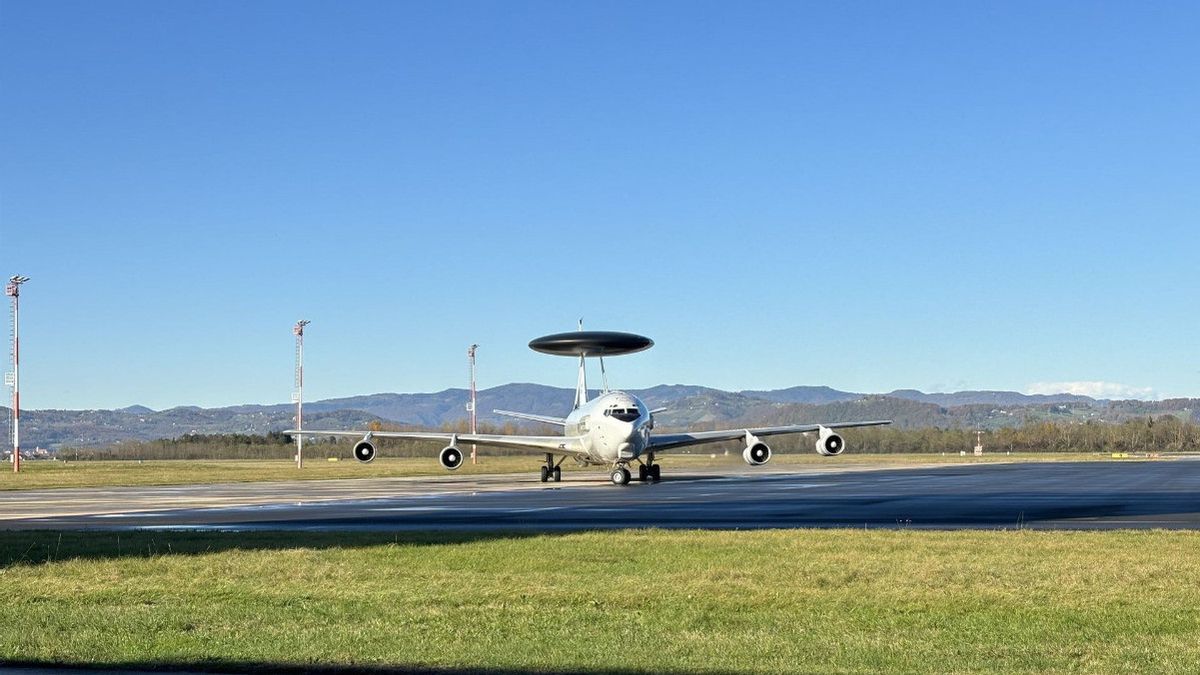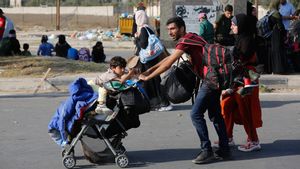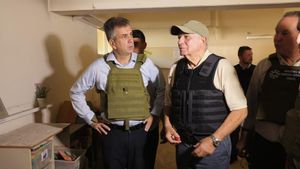JAKARTA - The North Atlantic Treaty Organization (NATO) has decided to replace its aging reconnaissance aircraft, with a newer and more modern fleet to support the military alliance's future operations.
In this midweek announcement, the AWACS fleet, which has been operating since the 1980s, will be replaced by a military version of the Boeing 737 commercial jet.
Acting like a flying radar tower, the AWACS (Airborne Warning and Control System) jet with a typical nine-meter-wide dome on its back has been NATO's eye in the sky since 1982.
With its rotating radar, a modified E-3A Sentry Boeing 707 jet can currently detect aircraft at a distance of more than 400 kilometers (250 miles).
They are capable of monitoring an area of about 300,000 square kilometers (115,000 square miles), according to NATO, an area the size of Poland, and can also detect targets on land to ships.
To replace the old AWACS jet, NATO plans to purchase six Boeing E-7 A Wedgetail aircraft, with a contract to be signed in 2024, while the first jet will be ready for operational duty by 2031.
"Supervisory and controller aircraft are critical to NATO's collective defense and I welcome allied commitment to investing in advanced capabilities," NATO Secretary-General Jens Stoltenberg said.
"Investments in this most advanced technology demonstrate the strength of transatlantic defense cooperation as we continue to adapt to a more unstable world," he explained.
The alliance did not specify why it chose to replace its fleet of 14 aircraft today with just six Wedgetail jets. However, the alliance said the selected new aircraft would have better and more expensive capabilities than its predecessor.
The United States, Britain, and Turkey also fly the wedgetail or plan to operate it.
It is known that based on the Geislenkirchen airbase in Germany, the AWACS fleet has been widely used for NATO surveillance missions along the eastern side of the alliance, following Russia's attack on Ukraine.
BACA JUGA:
In the past, the aircraft not only supported NATO missions in the Balkans, Afghanistan and Iraq, but also supported events such as the 2006 World Cup in Germany and the alliance's summit.
In a conflict, AWACS aircraft can not only provide radar images for allied fighter jets, ships and control centers, but also direct NATO fighter jets to their targets.
The plane, one of NATO's few assets, is manned by multinational crews from 19 of 31 allied countries.
The English, Chinese, Japanese, Arabic, and French versions are automatically generated by the AI. So there may still be inaccuracies in translating, please always see Indonesian as our main language. (system supported by DigitalSiber.id)


















